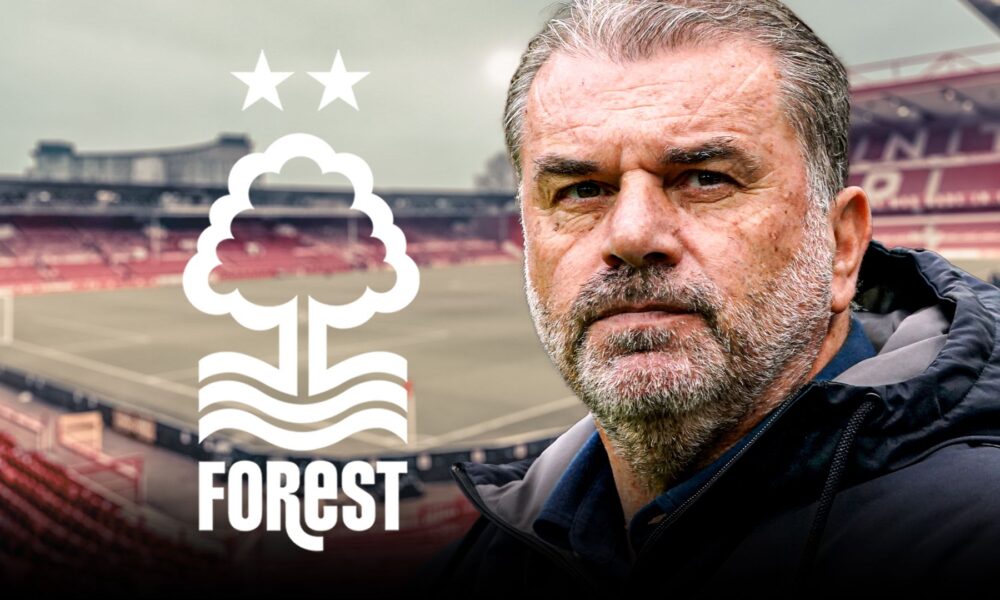Ange Postecoglou’s time as head coach of Nottingham Forest came to an unexpected end on August 26, 2023, following a disappointing 3-0 defeat to Chelsea at the City Ground. Just minutes after the match concluded, Postecoglou informed his players of his sacking—a decision that was made public only shortly thereafter. This swift action by owner Evangelos Marinakis marked the culmination of a tumultuous 39 days in charge, during which Postecoglou oversaw a mere eight training sessions with the full squad.
The decision to dismiss Postecoglou was particularly striking given that he had only recently settled into his new home in Nottingham, moving into an apartment just the week prior. His coaching staff, who had not been informed about their own futures when Postecoglou was let go, learned of their fate a few hours later. This decisive move suggests that the club’s management was not willing to tolerate a continuation of poor results, even in the early stages of the season.
During Postecoglou’s brief tenure, the team struggled with injuries and inconsistencies. Key players such as Ola Aina, who was considered vital to Postecoglou’s strategy, were sidelined for the entirety of the season due to injury. Other important squad members, including Murillo, Douglas Luiz, and Oleksandr Zinchenko, also missed significant playing time during the manager’s eight-game term. These challenges made it difficult for Postecoglou to implement his vision of a more possession-based, attacking style of football—termed “Angeball”—which diverged sharply from the more pragmatic approach established by his predecessor, Nuno Espirito Santo.
Transitioning Styles and Tactical Challenges
The decision to shift Nottingham Forest’s playing style was met with mixed reactions. While many players reportedly enjoyed the more dominant approach, it raised questions about the viability of such a transformation. Following a strong start to the previous season, where the team spent much of the time in the top three, they ultimately finished in seventh place, leading some to argue that their previous success was not sustainable.
Sources close to the dressing room noted that the squad’s over-reliance on specific players—like Chris Wood, who had exceeded his expected goals tally the previous season but struggled to find the net thereafter—was a critical factor. Wood’s performance, along with that of goalkeeper Matz Sels, who had won the Golden Glove the previous season, highlighted the challenges the team faced as they attempted to replicate earlier successes.
Despite these hurdles, Postecoglou’s coaching team believed that an attacking philosophy would lift the players’ spirits and enhance their overall performance. This approach resulted in improved attacking metrics, yet the team struggled to convert opportunities into goals. In his final match, Forest squandered several clear chances against Chelsea, underscoring the gap between their potential and performance.
Set-Piece Struggles and Lack of Support
A persistent issue during Postecoglou’s time at the club was the team’s inability to defend set-pieces effectively. Nottingham Forest conceded 11 goals from set-pieces during his short reign—far exceeding the average for Premier League teams, which typically hovers around 25 percent of goals conceded. This defensive frailty was evident in both his opening and closing matches, where set-piece goals played a decisive role in their losses.
Compounding Postecoglou’s challenges was the lack of public support from the club’s hierarchy. Unlike other clubs, where managers receive backing from their boards during tough periods, there was a notable silence from Forest officials regarding Postecoglou’s future. This absence of support contrasted starkly with the backing received by other managers in similar situations across the league.
While Postecoglou’s time at Nottingham Forest was short-lived, it raised important questions about the club’s direction and the expectations placed on its coaches. With the arrival of new manager Sean Dyche, who has a reputation for valuing set-piece efficiency, it remains to be seen how the club will address these ongoing challenges.
Postecoglou’s experience serves as a reminder of the high stakes and pressures that come with management in professional football, where results are often demanded with little tolerance for transitional phases.







